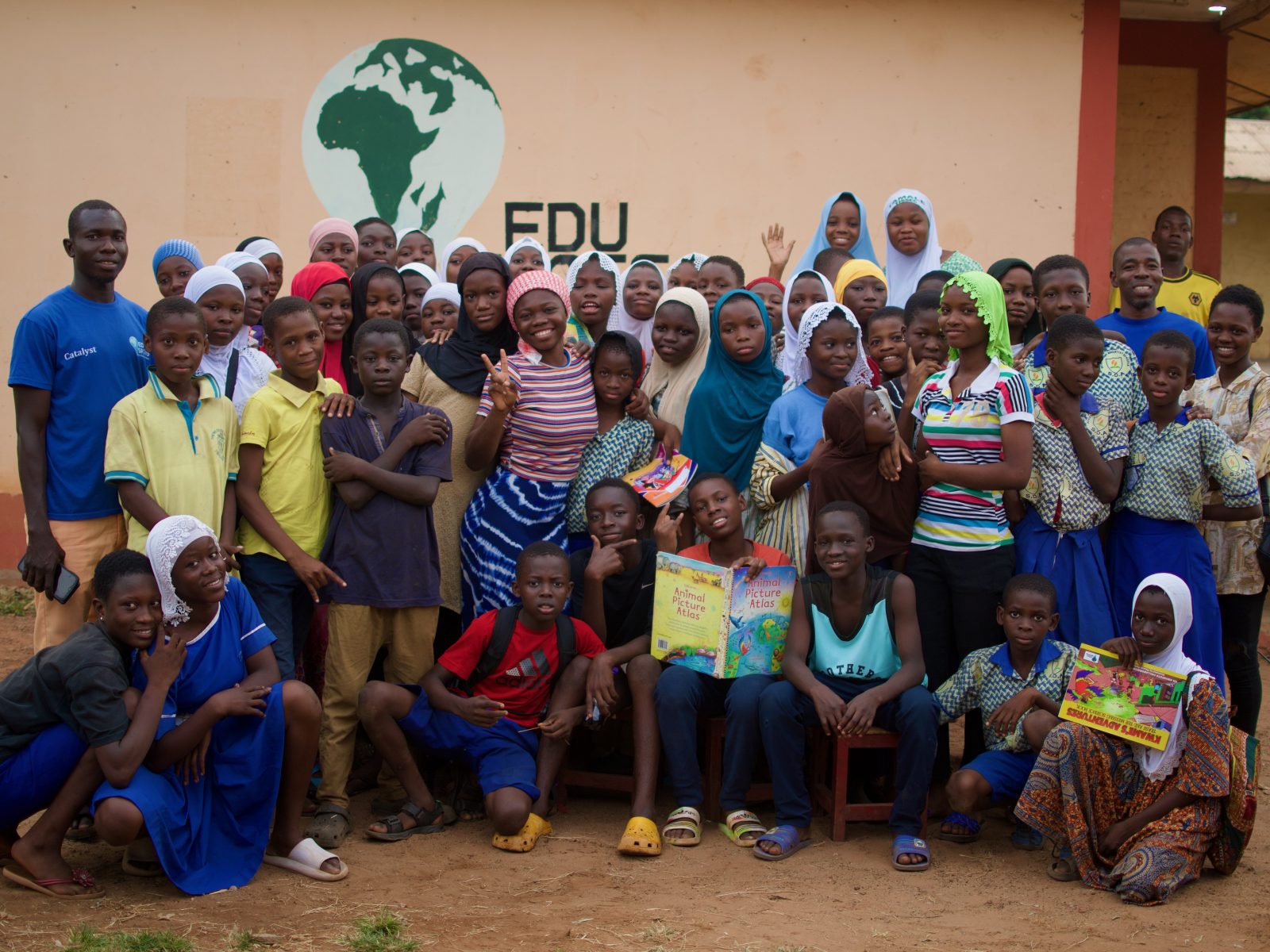Kalpohin is a peri-urban community — it was formerly part of the Tamale Metropolis, but is now within the Sagnarigu Municipality. With a population exceeding 81,000, it blends rural and urban characteristics.
Despite peripheral development, challenges like poor road networks, drainage issues resulting in frequent flooding, and water and sanitation problems persist. The community is primarily agrarian, with over 80% of children involved in apprenticeships, which negatively impacts school enrolment and retention despite the presence of numerous educational institutions.
The Spot was established to create a conducive learning environment and provide access to resources beyond what local schools offer. It aims to support students’ education, offer practical learning sessions, and serve as a community hub for educational and cultural activities. This initiative seeks to engage idle youth who otherwise loiter due to the lack of a conducive space for learning and growth.
The project was initiated by four enthusiastic Lead for Ghana fellows — Stephen, Ali, Lawrence, and Evans — during their service at Kamaria JHS. Recognizing the community’s need, they sought support from EduSpots, and received a positive response. Nabila Adam facilitated community engagement, involving the assemblyman, unit committee, and local chiefs. This collaborative effort led to the formation of a Spot management committee, and the library was inaugurated on January 5, 2019.
The initial steps included engaging youth groups, identifying a suitable location, and forming a team of local Catalysts. Despite challenges such as location changes due to flooding and securing labour and water, the community united to support the project. Students contributed by bringing water, and youth groups and local artisans provided labour, ensuring the Spot’s completion.
The Spot, supervised by the management committee, offers programs in literacy development, the Ignite Equity Club, EcoSTEM for JHS, mentorship sessions, and intervention teaching. It hosts events like International Day for the Girl Child and Literacy Day. These activities involve local school heads, education authorities, parents, assemblymen, and unit committees. Catalysts, trained by EduSpots, passionately drive these programmes, aiming to create meaningful change.
The library has significantly reduced the number of students loitering, especially at night, by providing a solar-powered, safe space for reading. More girls are now choosing STEM-related courses, with 99% of STEM club members pursuing science subjects in senior high school! The library’s activities are reducing school drop-out rates and fostering a sense of responsible citizenship among learners. Many former students are now pursuing tertiary education and have joined the Catalyst team.
The vision for the future includes engaging local partners to fund projects, ensuring that the library becomes an educational hub for the community. The aim is to decentralise programmes to involve all schools, contributing to the sustainability of the library’s impact.
“The impact of the library on learners is greatly felt these days in class. They have cultivated the habit of reading their notes and even go beyond what they learn in school. They spent some time learning, they don’t loiter about, the spirit of the library is in some of them and they always have the desire to broaden their knowledge” – Mohammed Mutala Suleman, Assistant Headmaster of Kalpohin Anglican JHS ‘A’
“The library has built confidence in me. It has also made me learn adventures and moral lessons from the books, especially the African writers books. My academic performance has improved and my leadership skills which made me contest the senior prefect position in my school and won the Assistant SP”– Savera Aduku, Kalpohin SDA and Literacy club member.
Read more about Kalpohin’s story HERE.



